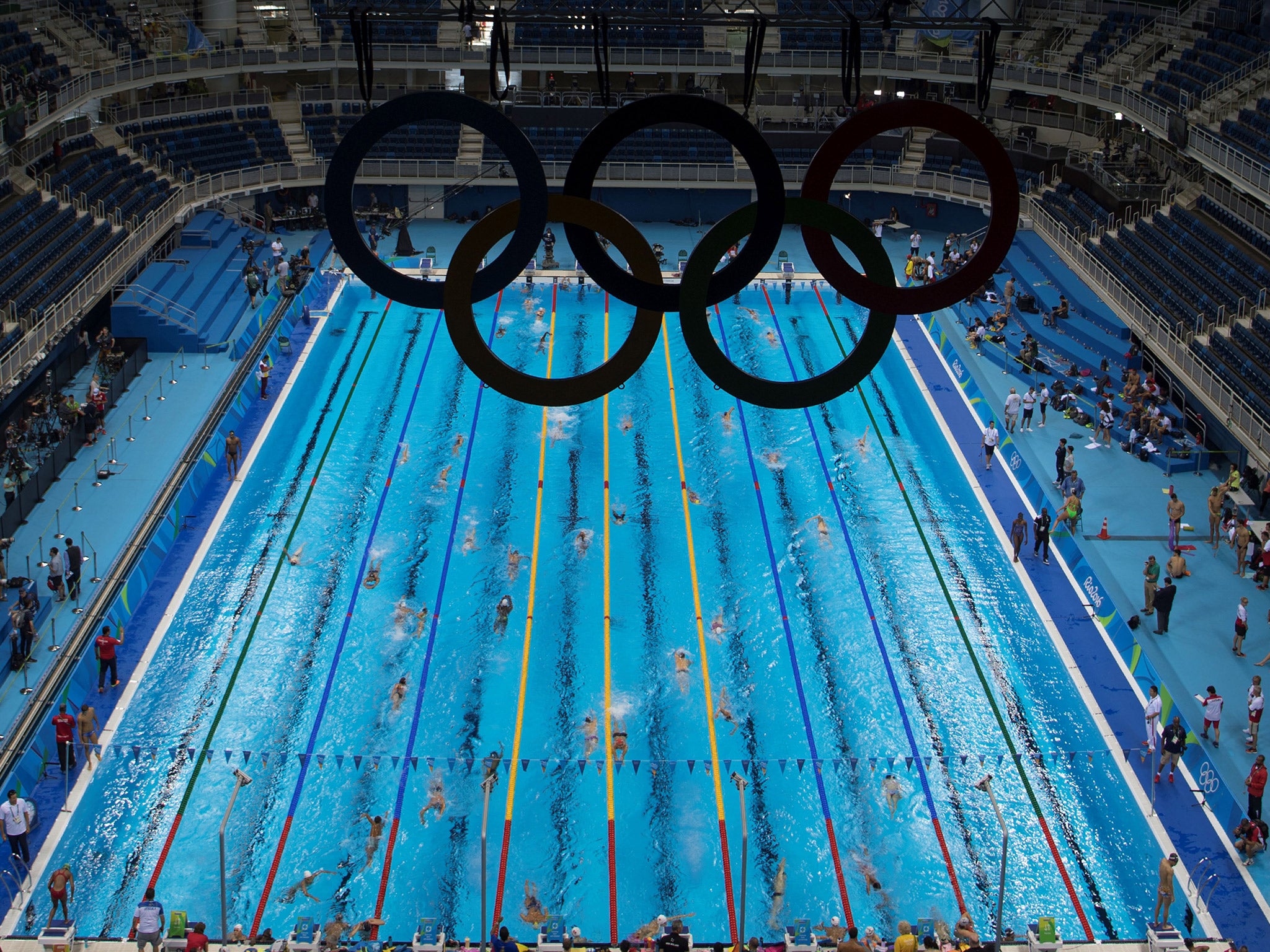Rio 2016: Olympic swimmers required to be watched over by lifeguards due to bizarre Brazilian law
Four lifeguards will be on duty throughout the Olympics at all times at the swimming pool

Leading Olympic medal winner Michael Phelps will return to the swimming pool on Monday safe in the knowledge that the world’s best swimmers are being protected in Rio – by lifeguards.
Despite hundreds of the best swimmers on the planet converging in Rio de Janeiro to battle it out for gold, silver and bronze, Brazilian law means that any public pool over a certain size must have lifeguards on duty at all times while there are people swimming in it.
That means while Phelps duels with his London 2012 rival Chad Le Clos and the rest of the Olympic hopefuls, two people in distinct yellow and red outfits with whistles and buoyancy aids at the ready will be standing in the background for the world to see.
“It is a Brazilian law that any public pool over a certain size has to have lifeguards,” Ricardo Prado, sport manager for aquatics, told Reuters.
“We wish we didn’t have them either (at the Games) but we have to have them.”
But while the men and women given the task of guarding to pool – and interestingly being paid about $340 [£260] throughout the fortnight for essentially watching the Olympics – they’ve landed one of the best seats in the house.
The lifeguards are among the few allowed on the pool deck, meaning they can get closer to the action than anyone else beyond the officials judging the races, and the chances are that there won’t be a single incident for them to deal with throughout the event.
“It’s a one-in-a-million type of event, but we’re prepared,” said 39-year-old lifeguard Anderson Fertes, who also admitted that he’s “dreaming of that possibility” of having to rescue Phelps during the Olympics.
“I don’t think they’ll need us, but we’ll be on the lookout just in case.”

Despite it being law in Brazil for any pool larger than six by six meters to be guarded, the comical effect of having lifeguards at the Olympics has not been lost on the athletes.
“It’s really one of the funniest things I’ve seen in the Olympic Games so far,” New Zealand swimmer Matthew Stanley told reporters this week.

“Have any of you guys been to Bali before? You see the lifeguards and they sit up on the tower drinking Bintangs (beer) all day. That’s what it reminded me of.
“If anyone has a heart attack, you’re going down.”
The pool was closed on Friday to allow divers to check the underwater cameras ahead of Saturday’s opening day of competition, and Australia’s youngest athlete at the Games, 17-year-old Tamsin Cook, admitted the lifeguards were probably needed more then than they will throughout the next fortnight.
“After the warm-up this morning it was pretty insane, I could have imagined that a lifeguard might have been needed to be used,” said Cook. “But yeah, it is quite funny.”
Team GB’s Jazz Carlin though admitted that she hadn’t really noticed them, and said it reminded her of training back in Bath where the public are able to join the British athletes.
“It’s a bit different. I guess it’s always nice to have someone watching,” said Carlin.
“We train at the university pool (in Bath) and the public can come in as well so they make sure they have got lifeguards there.”
Join our commenting forum
Join thought-provoking conversations, follow other Independent readers and see their replies
Comments
Bookmark popover
Removed from bookmarks